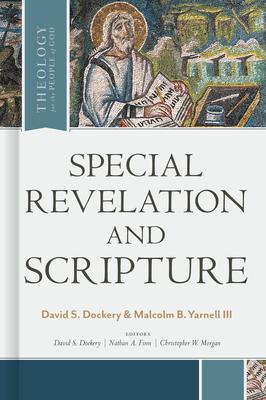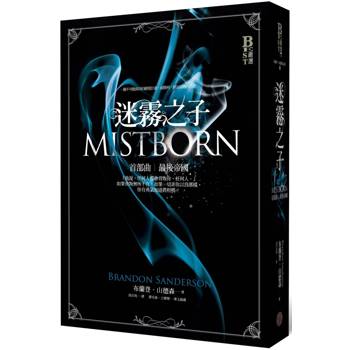The doctrine of special revelation and the role of Holy Scripture have been central to the Christian faith for two thousand years. Yet, the nature, authority, and interpretation of the Bible continue to be discussed and debated. In their book Special Revelation and Scripture, David S. Dockery and Malcolm B. Yarnell III explore the fundamental elements of divine revelation, such as inspiration, reliability, and authority, and how these elements influence and shape the Christian’s understanding of theological doctrines, ethical teachings, and matters concerning worldview.
Dockery and Yarnell begin by developing the doctrine of divine revelation that emphasizes the Bible as the revealed word of the triune God--Father, Son, and Holy Spirit. They examine the relationship between the Second Person of the Trinity, Jesus Christ, and sacred Scripture, highlighting their foundational connection. Furthermore, they explore the work of the Holy Spirit in inspiring the prophetic and apostolic writings and safeguarding them in the biblical canon. The authors affirm the special nature of Scripture by highlighting its essential attributes of truthfulness, inerrancy, sufficiency, and authority. They conclude by emphasizing the Holy Spirit’s role in illuminating Scripture for the development of theology and practice within the church. Throughout the book, readers will encounter a deep and abiding conviction that God’s special revelation is preserved and made accessible for all human beings in his inspired Word, the Holy Bible. Dockery and Yarnell’s comprehensive exploration of divine revelation and Scripture will inspire readers to engage with the Word of God in a more meaningful and transformative way. Recognizing that faithful theological study is an integrative task, the Theology for the People of God series uniquely combines biblical and systematic theology in dialogue with historical theology and with application to church and life. This series addresses classic doctrines of systematic theology and other relevant topics, pairing careful scholarship with the practical understanding that theology finds its focus within the context of the church. Together, the series’ authors guide readers in developing a theologically informed way of seeing the world, a Christlike response to life, and Christian motivation for ministry.| FindBook |
有 1 項符合
Special Revelation and Scripture的圖書 |
 |
Special Revelation and Scripture 作者:Dockery 出版社:B&H Publishing Group 出版日期:2024-05-01 語言:英文 規格:精裝 / 512頁 / 22.86 x 15.24 x 1.91 cm / 普通級/ 初版 |
| 圖書館借閱 |
| 國家圖書館 | 全國圖書書目資訊網 | 國立公共資訊圖書館 | 電子書服務平台 | MetaCat 跨館整合查詢 |
| 臺北市立圖書館 | 新北市立圖書館 | 基隆市公共圖書館 | 桃園市立圖書館 | 新竹縣公共圖書館 |
| 苗栗縣立圖書館 | 臺中市立圖書館 | 彰化縣公共圖書館 | 南投縣文化局 | 雲林縣公共圖書館 |
| 嘉義縣圖書館 | 臺南市立圖書館 | 高雄市立圖書館 | 屏東縣公共圖書館 | 宜蘭縣公共圖書館 |
| 花蓮縣文化局 | 臺東縣文化處 |
|
|
圖書介紹 - 資料來源:博客來 評分:
圖書名稱:Special Revelation and Scripture
內容簡介
作者簡介
David S. Dockery (PhD University of Texas System) is president of Southwestern Baptist Theological Seminary and president of the International Alliance for Christian Education.
Malcolm B. Yarnell III (DPhil, Oxford University) is research professor of theology in the School of Theology at Southwestern Baptist Theological Seminary.Treatises, Epistles, and Sermons: With Roger of Byland, the Milk of Babe Volume 34
Spirituality of Paul
The Power of His Presence
Joy in the Morning
The Life of Christ (Reader’s Edition): Volume 1
The Life of Christ (Reader’s Edition): Volume 1
Paul Through the Eyes of the Reformers: Living Under Grace
The Power of Protocol: Diplomatics and the Dynamics of Papal Government, C. 400 - C.1600
Fatherless Reflections on the Fatherhood of God
A White Catholics Guide to Racism and White Privilege
Spirituality of Paul
The Power of His Presence
Joy in the Morning
The Life of Christ (Reader’s Edition): Volume 1
The Life of Christ (Reader’s Edition): Volume 1
Paul Through the Eyes of the Reformers: Living Under Grace
The Power of Protocol: Diplomatics and the Dynamics of Papal Government, C. 400 - C.1600
Fatherless Reflections on the Fatherhood of God
A White Catholics Guide to Racism and White Privilege
|











